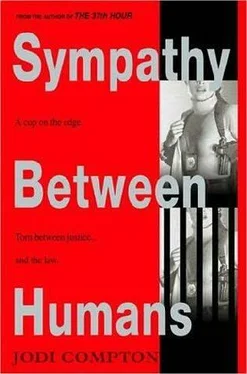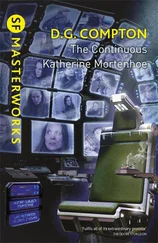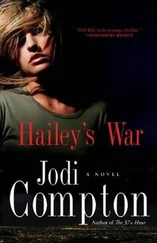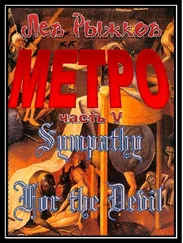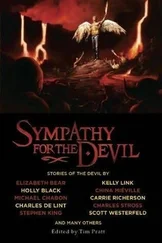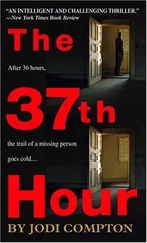A lot of cops profess a special concern and protectiveness for the young. Asked to explain, they’ll tell you, “Cops are moms and dads, too.” That wasn’t true with me. I alone among my peers in the detective division was childless. If anything, I was too close to my own youth. When Colm had made his dig at women and guns, I’d made my bitchy remark about the TV remote. When Marlinchen had attacked me on the issue of my professional abilities, I’d given it back to her, and twice as hard. I was acting less like a surrogate parent than an insulted sibling.
At 29, though I tried to cover up for it, I often felt raw and unfinished inside, psychologically colt-legged and wrong-footed. It was still too easy for me to reach out and touch the feelings of adolescence.
When I was 13, my mother’s aunt, Virginia, a waitress-bartender with long gray-streaked hair and my mother’s eyes, picked me up at the Greyhound station in Minneapolis. We’d driven three and a half hours to the Iron Range town in which she lived. Much of the year that followed was a blur.
I slept poorly and had bad dreams, all of which were set in my native New Mexico, the details of which were lost to me on waking. Memory, overall, was a problem that year; I was so forgetful that after a teacher conference, Ginny agreed to have me tested by the school psychologist, to see if something was seriously wrong.
The results were apparently inconclusive, but my memory did not immediately improve. I racked up several detentions for incomplete homework, not because I refused to do the assignments, but because I’d forgotten to bring home the textbook or write down the page and question numbers. I left the lunches I packed at home in the refrigerator. This was during the growth spurt that eventually took me to five-eleven, and the hunger pangs I experienced when I forgot to bring lunch to school crossed the line from unpleasant to painful. Once, after only having two sticks of chewing gum on lunch break, I grayed out in PE and ended up in the nurse’s office.
My father called twice a week to start, dropping back to once a week by mid-autumn. I used the word fine a lot. In early December, he asked if the weather was bothering me.
I’d experienced snow in the mountains of New Mexico, but nothing could have prepared me for what happened in northern Minnesota in January: the full-dark skies before even five in the evening, the warlike rollout of snowplows on the streets after every fresh snow, the eerie abandoned streets of a minus-thirty-degree morning. One day, wrapping myself in a scarf to walk home from school after detention in subzero weather, I commented to a janitor on the possibility of snow later.
“Have to warm up for that,” the janitor said, looking out at the clear sky. It was the first time I’d heard that it could be too cold to allow precipitation. Late that night, I’d looked out my window to where an ice-colored moon glowed in the airless reaches of the sky, and wondered how I had ever come to live in a place where it could get too cold to snow.
More than anything, it was basketball that turned things around, in my freshman year of high school. I didn’t have any feeling for the sport, other than having thrown a ball at a dilapidated netless hoop a few times in New Mexico. But Ginny suggested that I try out, and I was too apathetic to refuse her anything, so I did.
I never try to explain to people what basketball was to me; it’d come out sounding like inspirational sports-movie clichés. It wasn’t just that it was my first experience of being part of a larger unit, an understanding that I’d bring to cop work. It was as simple as this: after a year of numbness, in which I’d had no adolescent hungers, basketball gave me something to want. Halfway through the season, I started showing up early for practice, doing box jumps to strengthen my calf muscles and shuttle drills for agility, running after school for stamina. As I did, I’d felt a tension ease in my chest that had been there so long I hadn’t even recognized it.
“I was worried about you last year,” Ginny told me.
“I know,” I’d said. “I’m okay.”
***
It remainedmy habit to this day, taking my anxieties to the gym. Glad for the old T-shirt and shorts I kept in the trunk of the Nova, I went there now. But after I’d changed in the women’s locker room and gone upstairs, I stopped in the doorway of the cardio room, seeing a familiar form. Gray Diaz was running on the treadmill at a pretty good clip. I felt a reaction flush under my skin, but he was looking down at the machine’s readout. He hadn’t seen me yet.
I turned and went down the stairs. It didn’t matter, I told myself. I’d go out for a run tomorrow morning, when it was cool.
“You shouldn’t let him chase you off.”
A voice as low-timbred as a radio announcer’s stopped me by the locker-room door. I turned and looked around. There was nobody that Deputy Stone could have been talking to but me.
Jason Stone was 26, tall, and handsome. He had a smooth, low voice, and fluttered some pulses among the unmarried women in the department. He had recently been cleared of wrongdoing in an excessive-force complaint.
“I’m sorry?” I said.
“Gray Diaz,” Stone said. “I know who he is. Don’t let him get to you.”
The correct response, if there was one, wouldn’t come to me.
“Detective Pribek… may I call you Sarah?” he asked, solicitous. “I just wanted to tell you that a lot of us are behind you,” he said.
“Behind me on what?” I said.
“What you did in Blue Earth,” he said.
“I didn’t do anything in Blue Earth,” I said. “Whatever you heard, you heard wrong.”
“Royce Stewart needed to take a dirt nap,” he said. His voice sounded extremely reasonable. “That a guy like Diaz would try to come up here and further his career on it, at your expense- Sarah, that’s reprehensible to a lot of us.”
“I don’t think you heard me,” I said. “I didn’t do anything in Blue Earth.”
“I know,” Stone said, his expression saying we both knew better. “Keep your head up.”
I stayed in the shower and the locker room as long as possible, and then left as quickly as I could. I’d had enough of running into co-workers for one night.
That wasn’t, though, how it worked out.
I drove to Surdyk’s, a liquor store in the East Hennepin district, where I aimlessly cruised the aisles until I decided on a marked-down Australian cabernet. It was when I was walking back through the parking lot that Christian Kilander stepped out between two parked cars and into my path.
“Detective Pribek,” he said, recovering smoothly from the surprise.
It occurred to me that I’d never seen him off duty before, not like this. He wore good suits to work, and tank shirts and shorts to the basketball courts, but tonight he was wearing slightly faded jeans and a cream-colored shirt.
“How have you been?” I said awkwardly.
“Pretty well, thanks,” he said. “And you?”
“Fine,” I said. “You know, I saw you the other day.”
“You did?” he said.
“With Gray Diaz.”
I didn’t know exactly why I was bringing it up. Perhaps it stung just a little, imagining Kilander to be friendly with this man who’d come to the Cities to nail me for something I didn’t do.
“I know him,” Kilander acknowledged.
“He’s a friend of yours?” I asked.
Kilander held up a palm. “I don’t think I want to be in this conversation.” He started moving away from the gleaming black hindquarter of his BMW and toward the store.
“What?” I said blankly. “Chris.”
He turned, or half turned, to face me.
“You can’t seriously think I was working up to asking for inside information. Do you?” I demanded.
Читать дальше
